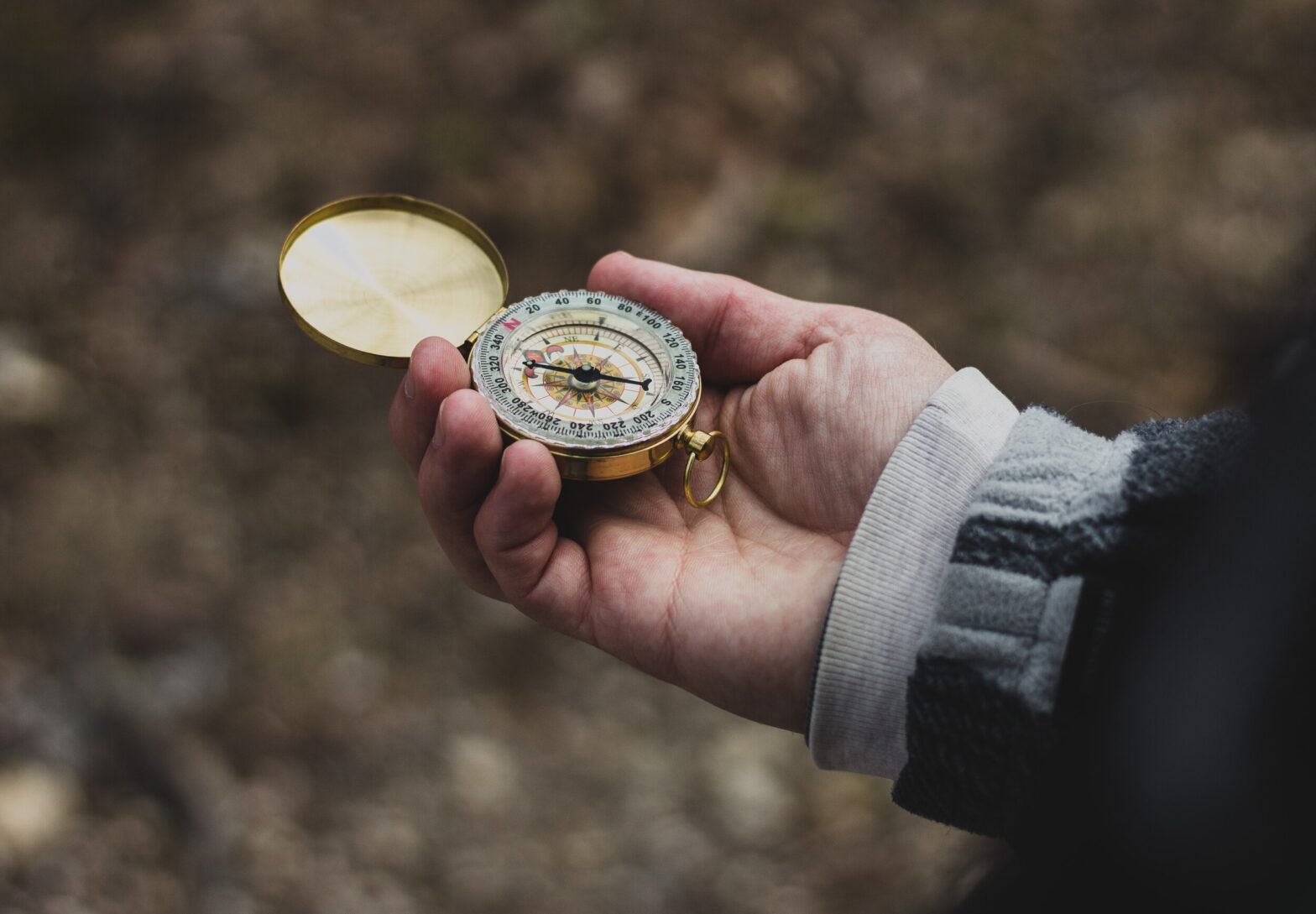Getting Lost

On one of our cross-country misadventures back in the day, my brother and I headed off in a direction that, had we been on any sort of tight schedule, would have made one big, ugly mess.
We jumped off the Interstate, made one wrong turn and, neither of us paying much attention for reasons I shan’t go into, (use your imagination) continued for hours before we pulled into a truck-stop and discovered our mistake.
Oops.
The only way to go where we were originally intending was to retrace our route. While it wasn’t unpleasant, it did make for a rather long night of driving, and we arrived at our Rochester, Minnesota destination well after sunrise the next morning.
Only about 5 hours later than planned.
We were doing more driving than stopping on that trip, spelling one another on sleep and at-the-wheel shifts. It was the sort of fun, ne’er-do-well adventure one has at 20-something when there’s a need to get from one coast to the other and a week to spare.
We had the gifts of youth, wiggle-room time, a drive-away car that belonged to someone else and, in no small way, all the clueless wonders of the pre-GPS era.
If we hadn’t gotten lost, there’d be one less story to tell, which leads me to the point of sharing this…
In our current culture, we seem to have a love-hate relationship with mistakes and getting lost.
On the one hand, we love tales of errors that birth breakthroughs and innovations.
Gimme an Amen for penicillin and Post-It® Notes!
On the other hand, we lean hard toward risk aversion and seem allergic to failure.
The irony, of course, is that without the risk of failure there’s not much play-space for those amazing off-road discoveries.
Because allowing risk requires one remain as open to failure as they are to new ideas and perspectives. That might not sound like a big deal on paper, but real-world practice is a different kind of critter. After all, in no small way we’re conditioned from early school days to view failure as a set up for humiliating bummer-fests.
Never mind that no one ever learned to walk without falling.
Forget that the adults in our lives were endlessly entertained by the clumsy things we did with words in our early attempts at verbal communication.
As we grow, we receive a mess of mixed messages about failing. We’re taught that success in school is measured by how much we get right. The fewer red marks on a test, the better…
Yet at the same time, we’re likely studying historical figures who became who they were because they took risks. (We just have to remember when those characters took their risks. You know, to keep the red marks off the history exam.)
Don’t get me wrong, accuracy and precision are desirable in certain subjects. There are times when having a clear, factual answer is wildly important.
But too much focus on getting it right and “teaching to the test” can’t help but kill the spirit of experimentation and the discovery that goes along with it.
One thorny dilemma I often see in my clients has them caught in the narrow chasm between an unfulfilling, predictable, well-paid gig – getting it “right” – and a creative, fulfilling creative calling on the other.
I’m not going to lie. That chasm can be a squirmy, difficult place to be.
The comfort of the known “right”, however, grows less comfortable with time, particularly once one becomes aware of a bigger world out there, filled with possibilities…
Once one taps into that awareness, the goose laying the golden eggs begins to morph into a pair of aureate handcuffs, and the stirring soul hints that it might just be time to take what others will surely see as a wrong turn.
Others, of course, aren’t interested in taking that turn and, projecting their own biases and fears, warn us away from going off-road.
Because they’re focused on the goose, the eggs and perceptions of safety, they can’t grok the handcuffs or, for that matter, the creative longings.
“You have it so good! There aren’t any red marks on your test! Why risk it?”
While I can’t answer for you, I can tell you that when it comes to finding one’s creative path, the greatest risk anyone can take is attaching to the status quo.
Because like those two younger versions of my brother and I, new discoveries and creative expression won’t be found on the Interstates, nor do they come equipped with a GPS.
Off you go!